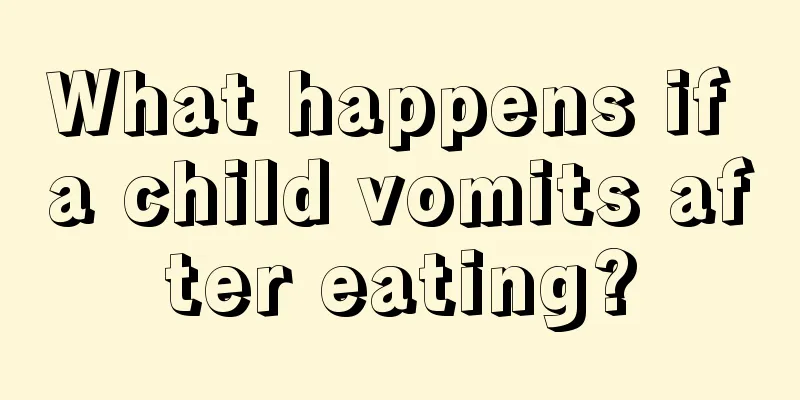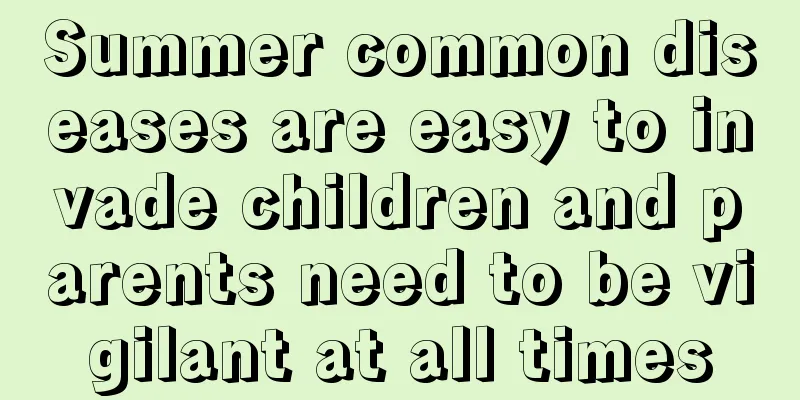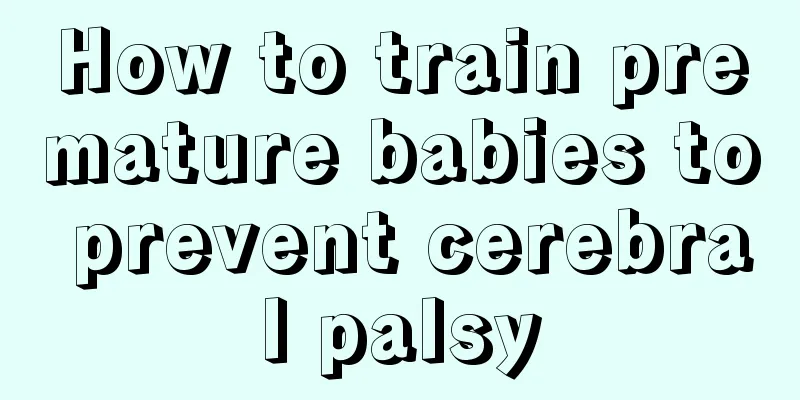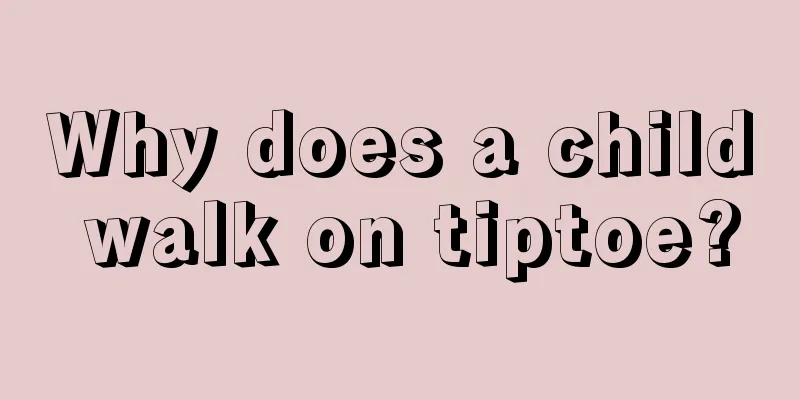What happens if a child vomits after eating?

|
When families see that their children have problems with eating, they still need to be vigilant. So what's the matter with children vomiting after eating? Generally speaking, vomiting indicates poor gastrointestinal or digestive tract function, but for children, the various organs of the body have not yet matured, and vomiting is relatively common. Whether it is due to physiological or pathological reasons, it needs to be taken seriously. According to the doctor, there are many reasons why babies vomit after eating. Common causes include routine feeding, gastrointestinal diseases, colds or other respiratory infections, excessive crying or coughing, accidental ingestion of toxic substances, and infection or serious illness. If the child acts fine after vomiting, is in a good mood, and gains weight smoothly, parents do not need to worry. However, if the following situations occur, you must take your child to the hospital for diagnosis and treatment immediately: vomiting accompanied by abdominal swelling and tenderness, which means that the child has accumulated fluid or gas in the stomach, intestinal blockage or other problems in the digestive tract; repeated severe vomiting or vomiting lasting more than 24 hours may be a sign of epilepsy; green bile in vomitus may indicate intestinal obstruction; fever accompanied by shaking the head or touching the head with the hands may indicate otitis media or meningitis; lack of energy or severe irritability may be lead poisoning, which can be confirmed by a blood test. After excluding pathological causes and eating habits, the baby's vomiting after eating is mostly caused by gastrointestinal disharmony. Just like Coco, who usually eats well and is not sick after examination, it may be caused by spleen and stomach disharmony and overflow of stomach gas. In this case, parents can let their children drink some ginger juice before meals. Ginger has the effect of strengthening the stomach and stopping vomiting. The diet should be light, low in oil, low in residue, soft and easily digestible food, such as rice soup, porridge, honey and carrot soup, or fish, chicken, etc., and pay attention to eating small meals frequently, and avoid spicy, greasy and heavy foods. Of course, one thing mothers should keep in mind is: if your baby vomits after eating, you must not give the child any antiemetic drugs on your own, whether it is prescription or over-the-counter drugs. You must take medicine under the advice of a doctor. Through the above introduction, everyone is clear about why children vomit after eating. If the vomiting is serious, you must go to the hospital to consult a doctor in time. Do not delay, otherwise it will pose a great threat to the child's growth and development. You must also constantly regulate the child's stomach and intestines to prevent problems before they occur. |
<<: What should I do if my child doesn't like to eat for ten months?
>>: What happens if the child doesn't want to eat?
Recommend
Why is the monocyte count in children's blood routine high?
Children's health is an issue of great concer...
What are the symptoms of excessive liver fire in children?
The intestine is one of the more important organs...
Baby sleeping
If a baby who is less than one month old makes gr...
Middle school students with myopia
Today's children are exposed to more and more...
What are the sports for children?
What kind of sports are there for young children?...
Can children drink milk powder if they have a cough?
Children are the group most likely to cough. Fami...
How to eat when baby has pharyngeal ulcer
The baby is the apple of the eye and the joy of a...
What causes children to have a high fever and vomit?
All parents should pay great attention to their c...
Symptoms of a 2-year-old baby getting a fish bone stuck in his throat
People cannot express their physical feelings whe...
Developmental indicators of a two-year-old and nine-month-old baby
During the process of children's growth, pare...
How to treat enamel hypoplasia in children?
Usually, due to various reasons, children may exp...
What to do if your baby hiccups? 6 ways to solve it
Hiccups themselves do not have any adverse effect...
What causes children to sweat at night?
Sweating is a common physiological phenomenon of ...
Can babies sleep on buckwheat pillows?
The baby's bones are not fully developed yet,...
What causes headache and vomiting in children?
With the change of seasons, many people are prone...









